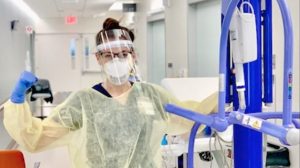NEW YORK (Reuters Health) – Consistent with their ability to block platelet aggregation, selective serotonin reuptake inhibitors (SSRIs) appear to increase the risk of serious upper gastrointestinal (GI) bleeding, say researchers from Denmark in the December Clinical Gastroenterology and Hepatology.
“We hope that non-gastroenterologists will become aware that this association has to be remembered in daily clinical work,” Dr. Michael Dall from University of Southern Denmark, Odense, told Reuters Health.
Dr. Dall and colleagues studied the association between SSRI use and upper GI bleeding, using data from 3652 patients with a first discharge diagnosis of serious upper GI bleeding and 36,502 age- and sex-matched controls.
Current, recent, and past SSRI users had risks of upper GI bleeding that were 70%, 86%, and 24% higher, respectively, than among nonusers, the authors report. The risk was not increased among tricyclic antidepressant users, however.
The highest risk was in patients who had started taking SSRIs most recently (3.5-fold increase for 0 to 30 days), but there was no relationship with estimated daily dose.
The risk was significantly increased when SSRI users also took aspirin and nonsteroidal anti-inflammatory drugs (28-fold increase for the combination of all 3, intermediate risk for other combinations).
The risk of upper gastrointestinal bleeding was not increased in patients who used proton pump inhibitors along with SSRIs, the researchers note.
As for recommending proton pump inhibitors (PPIs) for patients taking SSRIs, Dr. Dall said “not in general, but we think it would be recommendable in high risk patients taking NSAIDs, especially older people with a history of GI-bleeding. Our results show that there is a benefit if PPIs are used.”
The investigators calculated the number needed to harm at 718 person years.
“We as physicians have to pay more attention to possible side effects, especially with drugs that are known to be relatively safe,” Dr. Dall said.
“At the moment we are working with a possible association between use of SSRIs and uncomplicated peptic ulcers,” Dr. Dall added.
Reference:
Clin Gastroenterol Hepatol 2009;7:1314-1321.




